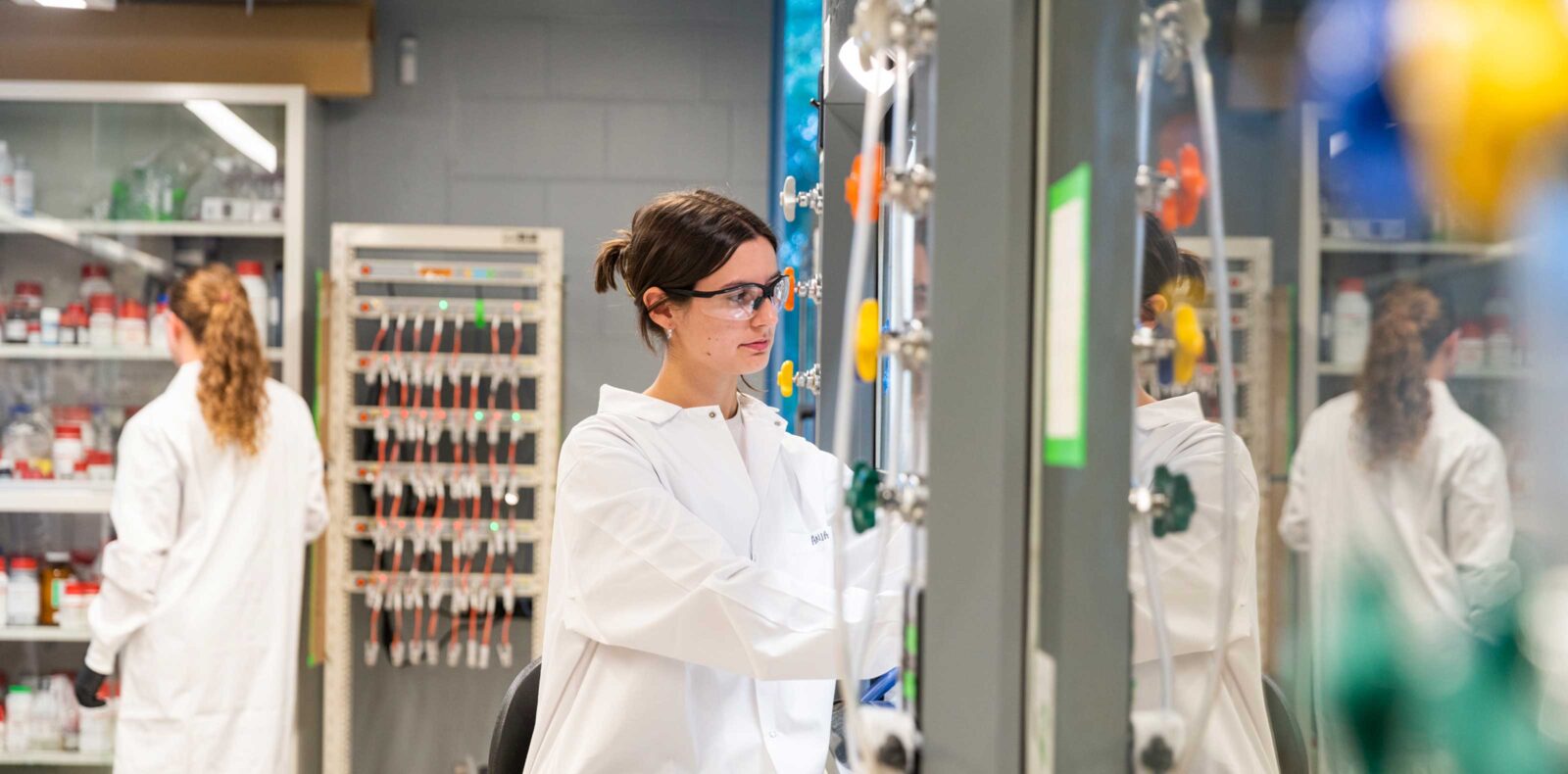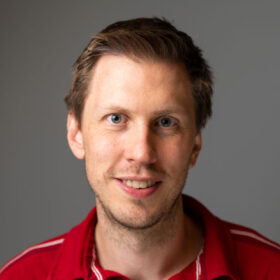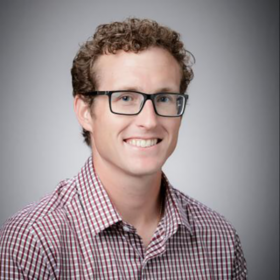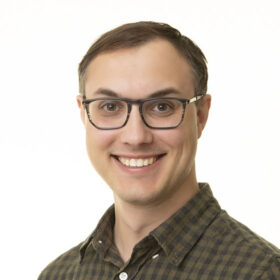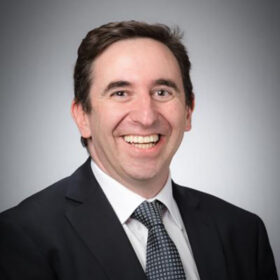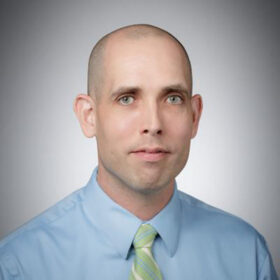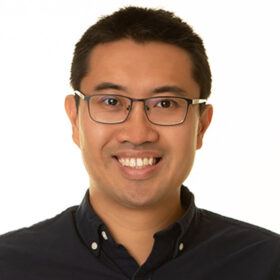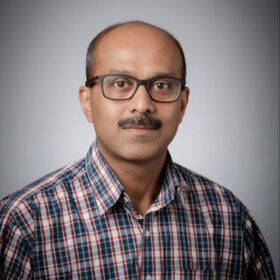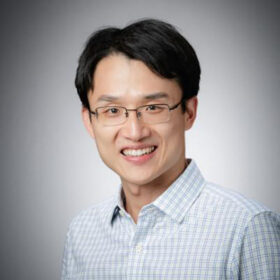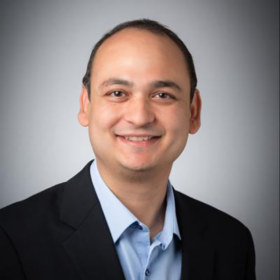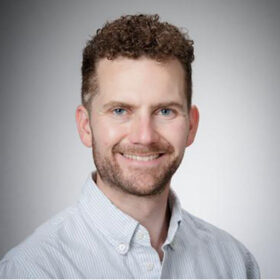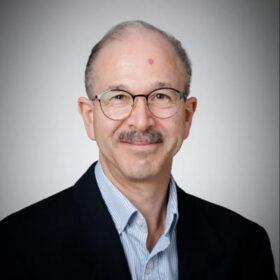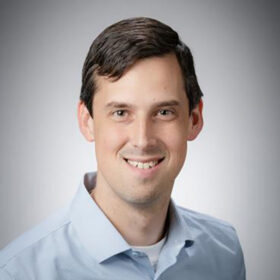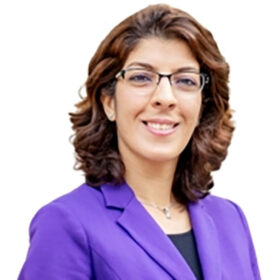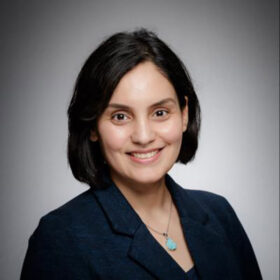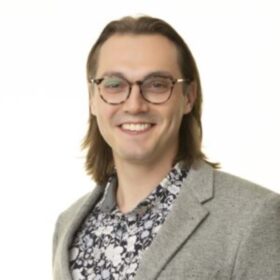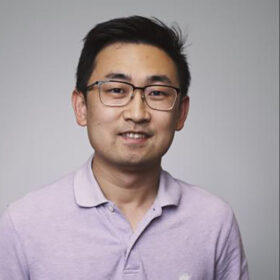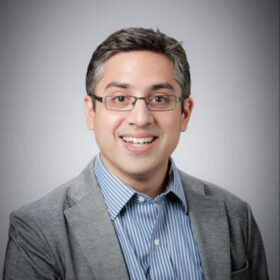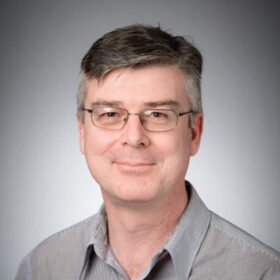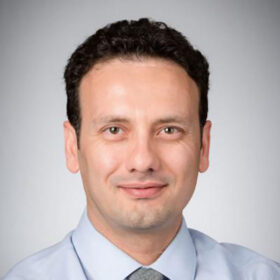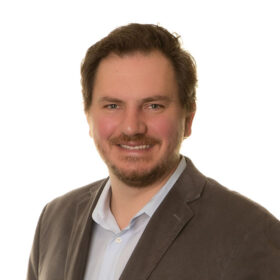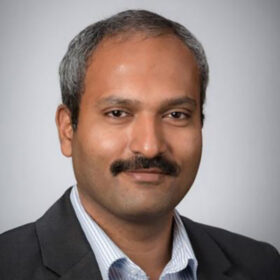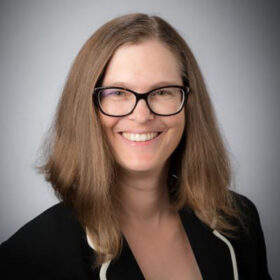-
Steady-state mass balances in chemical processes and the first law of thermodynamics. The behaviour of gases and liquids, and their physical equilibria. Recycle in steady state operation. Four lectures, one tutorial (two hours); first term Prerequisite(s): Registration in Level II of any Chemical Engineering program
-
Developing problem solving awareness, planning strategies, creativity, analysis methods, interpersonal skills, and networks in the context of a themed team project.
1 hour lecture per week, first term
Prerequisite(s): Registration in Level II or above of any Chemical Engineering program or permission from the Department. -
Formulation of first-principles and empirical models for various chemical processing applications at steady and unsteady states. Techniques for numerical solution of linear and nonlinear model equations. Techniques for numerical differentiation and integration of model equations and data sets. Three lectures; one tutorial (two hours every week); first term Prerequisite(s): MATH 1ZA3, 1ZB3, 1ZC3, registration or credit in CHEMENG 2D04, or permission from the department Antirequisite(s): CHEMENG 3E04
-
Combined mass and energy balances in the steady and unsteady state. The second law of thermodynamics, physical/chemical equilibria and sustainability.
Four lectures, one tutorial (two hours); second term
Prerequisite(s): Registration or credit in CHEM ENG 2D04 -
The laws of statics and dynamics in both compressible and incompressible fluids. Equations of conservation and modern turbulence and boundary layer theory applied to submerged and conduit flow. Similitude, unsteady flow, measuring devices and fluid machinery. Three lectures, one tutorial (three hours); second term Prerequisite(s): Registration in a Chemical Engineering, Materials Science, Materials Engineering or Engineering Physics (Nuclear Engineering and Energy Systems Stream) program Co-requisite(s): One of CHEM ENG 2F04, MATLS 2D03
-
Steady and unsteady conduction and convection. Understanding fundamentals behind heat exchanger design, and finned arrangements. Numerical simulations of complex heat transfer systems. Three hours of lecture, one tutorial (two hours); first term Prerequisite(s): CHEM ENG 2F04, CHEM ENG 2O04 (or CHEM ENG 3O04) Antirequisite(s): CHEM ENG 2A04
-
TECHNICAL ELECTIVE LIST B 3 unit(s) Kinetics of cellular processes, microbial processes and enzyme reactions including those of immobilized cells and enzymes. Cell culturing. Bioreactor design. Bioprocess development including downstream processing. Three lectures; first term Prerequisite(s): Registration in Level IV or above of any Chemical Engineering program or the Integrated Biomedical Engineering & Health Sciences (IBEHS) Program; or permission of the Department
-
Introduction to bioseparations engineering: cell disintegration, precipitation based separation processes, extraction, adsorption, chromatography centrifugal separations, filtration, reverse osmosis and nanofiltration dialysis, liquid membrane based separation processes, electrophoresis. Three lectures; one term
-
Review of the total energy balance, mechanical energy balance and thermodynamics of one component system. Chemical reaction and phase equilibria of multicomponent systems, with emphasis on non-ideality. Three lectures, one tutorial; first term Prerequisite(s): CHEM ENG 2F04
-
Chemical process simulations including models for heat exchangers, separators, reactors, heat integration, pressure handling, energy conversion, and other unit operations. Using process simulations to solve problems related to chemical processing, energy and sustainability.
Three lectures, one tutorial (two hours); second term
Prerequisite(s): CHEM ENG 2F04,CHEM ENG 2G03; and credit or registration in CHEM ENG 3D04 -
Operational characteristics of physical and chemical sensors, statistics of sampling and analysis, measurement error and data acquisition theory. Measurement of pressure, temperature, flow, strain and voltage. Technical writing and communication. Two lectures, one lab (three hours); first term Prerequisite(s): Registration in Level III or above of any Chemical Engineering program or permission of the department Antirequisite(s): CHEMENG 2I03
-
Stoichiometry of multiple reactions, kinetics of homogeneous reactions, interpretation of batch data, design of ideal and non-ideal CSTR and plug flow reactors. Three lectures; one tutorial (two hours); second term Prerequisite(s): MATH 2Z03 and 2ZZ3, and registration or credit in CHEM ENG 2F04 and 3D04, or permission of the Department http://learnche.mcmaster.ca/3K4/Main_Page
-
Experiments and projects in heat transfer, thermodynamics, mass transfer and fluid mechanics with appropriate data analysis and report writing. One lecture, one lab (three hours); second term Prerequisite(s): CHEM ENG 2O04 (or CHEM ENG 3O04), CHEM ENG 3D04 and credit or registration in CHEM ENG 3A04 (or CHEM ENG 2A04)
-
Stagewise operations, diffusion, mass transfer coefficients, distillation, differential contacting and absorption. Three lectures, one tutorial (two hours); first term Prerequisite(s): CHEM ENG 2F04
-
Transient behaviour of chemical processes. Theory and practice of automatic control. Introduction to computer process control. Three lectures, one tutorial (two hours); second term Prerequisite(s): MATH 2Z03 and MATH 2ZZ3; and credit or registration in CHEM ENG 2O04 (or 2A04), 3E04, 3K04, 3A04 (or 2O04) http://learnche.mcmaster.ca/3P4/Main_Page
-
TECHNICAL ELECTIVE LIST B
An overview of important synthetic and natural polymers with emphasis on polymer structure, the chemistry of polymer formation. An introduction to polymer characterization, recycling and sustainability. Three lectures; second term Prerequisite(s): One of CHEM 2E03, 2OA3, 2OB3, CHEM BIO 2OA3, 2OB3, or permission of the instructor -
This course will cover the principal physics of both heat and mass transfer including the principles of conservation of energy, a detailed study for how molecules move and mathematically modelling these scenarios. This course will cover the similarities between the two phenomena and how they can be applied to real world chemical engineering examples.
Four lectures; two tutorials (two hours each); first term
Prerequisite(s): CHEMENG 2F04, and CHEMENG 2O04; or Permission of the Department
Antirequisite(s): CHEMENG 3M04, CHEMENG 3A04, MATLS 3TP4, MATLS 3LP3 -
Unit Operations in Chemical Engineering, Operational characteristics of physical and chemical sensors, statistics of sampling and analysis, measurement error and data acquisition theory. Measurement of pressure, temperature, flow, strain and voltage. Using Excel for data analysis. PFD, P&ID review and production.
Three Lectures; One tutorial (two hours); first term
Prerequisite(s): Registration in Level III or above of any chemical engineering, and registration or credit in CHEMENG 3TP6; or permission of the Department
Antirequisite(s): CHEMENG 2I03, CHEMENG 3I03 -
Cradle-to-grave overview of major gas, coal, nuclear, biomass, petroleum, solar, and wind energy resources, networks, and systems. Gasification, fuel cells, polygeneration, synthetic fuels, alternative fuels.
Two lectures; one tutorial (two hours); first term
Prerequisite(s): CHEMENG 3G04, or permission of the Department -
Kinetics of polymerization: step-growth and chain-growth (free radical, anionic, anionic coordination and cationic). Polymerization processes: solution/bulk, suspension, emulsion, gas-phase, slurry and reactive processing. Principles of polymer process and reactor design, optimization and control. Three lectures; first term Prerequisite(s): CHEM ENG 3K04
-
This course addresses key aspects of implementing control via discrete calculations using digital computers. Topics include discrete-time dynamic models, system identification, analysis of discrete-time systems, design of digital control systems and model predictive control. Three lectures; first term Prerequisite(s): CHEM ENG 3P04
Cross-listed: CHEM ENG 4E03/ CHEM ENG 6E03 -
Fundamental concepts of electrochemistry, electrochemical engineering, and electrochemical technologies, with a particular focus on sustainable energy conversion and storage applications. The course will cover current and emerging areas of application for electrochemical technologies, electrochemical reaction kinetics, reactor design, thermodynamics, and mass transport. Three lectures; second term Prerequisite(s): Registration in level 4 or above of any chemical or materials engineering program, or permission from the Department
-
The application on optimization methods to important engineering problems in equipment design and operation, statistics, control, engineering economics and scheduling. The course will emphasize problem definition, model formulation and solution analysis, with sufficient details on existing algorithms and software to solve problems.
Two lectures, one tutorial (two hours); second term
Prerequisite(s): CHEM ENG 2O04 (or 3O04), CHEM ENG 3E04, CHEM ENG 3G04, CHEM ENG 3M04, CHEM ENG 3P04
http://learnche.mcmaster.ca/4G3/Main_Page -
TECHNICAL ELECTIVE LIST B 3 unit(s) Review of multivariate statistics. Acquiring, interpreting and processing large data sets. Introduction to dimensional reduction techniques such as principal component analysis (PCA) and projection of latent structures (PLS). Introduction to data clustering methods. Chemical and materials engineering applications. Three lectures; one term Prerequisite(s): One of COMMERCE 2QA3, STATS 3Y03, MATLS 3J03 or HTHSCI 2A03 or permission of the department
-
Catalytic kinetics, mass transfer limitations, packed and fluidized bed reactors, two phase reactors. Three lectures; first term Prerequisite(s): CHEM ENG 3K04
Cross-listed: CHEM ENG 4K03/CHEM ENG 6K03 -
Experiments and projects in transport phenomena, reaction kinetics, reactor design and process control with appropriate data analysis and report writing. One lab (three hours), one lecture; first term Prerequisite(s): CHEM ENG 3L02, 3K04, 3M04; and registration in Level IV of any Chemical Engineering program
-
Overview of separation processes, liquid-liquid extraction, supercritical fluid extraction, adsorption, filtration, membrane separation processes. Three lectures; first term Prerequisite(s): CHEM ENG 3A04 (or 2A04), CHEM ENG 2O04 (or 3O04), CHEM ENG 3M04 http://learnche.mcmaster.ca/4M3/Main_Page
-
Making decisions about the design and operation of engineering systems, with the analysis emphasizing safety, economics, equipment performance, uncertainty, flexibility and monitoring, including trouble shooting. Students will work individually and in groups on problem-based projects. Three lectures, one tutorial (two hours); first term Prerequisite(s): CHEM ENG 2O04 (or 3O04), CHEM ENG 3K04, 3M04, 3P04; and registration in CHEM ENG 3G04 Antirequisite(s): ENGINEER 2B03, 4B03 http://learnche.mcmaster.ca/4N4/Main_Page
-
3 unit(s) (cross-listed as CHEM ENG 6T03)
Applications of chemical engineering principles to biological systems and medical problems including examples from hemodynamics, blood oxygenation, artificial kidney systems, controlled drug release, biosensors and biomaterials.
Three lectures; second term
Prerequisite(s): One of CHEM ENG 2O04 (or 3O04), ENG PHYS 3O03, ENG PHYS 3O04 or MECH ENG 3O04
Cross-list: BIOMED 6T03/CHEM ENG 4T03 -
Mastery of core technical engineering skills with applications through student mentor-ship and teaching practicums. Demonstration of deeper understanding through lecture design and presentation, assessment design, and course material development. Two lectures (during first term), one practicum placement (during second term); both terms Prerequisite(s): Registration in final level of any engineering program and permission of the instructor
-
Projects, often in cooperation with industry, usually involving steady-state design and computer simulation of an existing or new process. Plant equipment may be tested to develop simulation models. Sustainability analysis applied as an integral part of plant design. Three lectures; both terms
Prerequisite(s): Registration in the final level of any Chemical Engineering program, registration or credit in CHEMENG 4N04, or permission of the DepartmentLearn more about the capstone projects -
An introduction to the basic principles of polymer processing, stressing the development of models. Rheology of polymers, extrusion, moulding, films, fibres, and mixing. Reactive processing. Three lectures; one term Prerequisite(s): One of CHEM ENG 3A04 (or 2A04), MATLS 3E04 or MECH ENG 3R03; and CHEM ENG 2O04 (or 3O04) or MECH ENG 3O04
Cross-listed: CHEM ENG 4X03/ CHEM ENG 6X03 -
A research and design project with students working independently under the direction of a faculty member. The hours assigned can be freely scheduled to suit those involved in a particular project and may include computation classes, laboratory work, discussions, or individual study.
-
3 unit(s)(cross-listed as CHEM ENG 6Z03)
The physics and chemistry at the “nano” scale including interactions forces, colloids, surface active systems, wetting, adhesion, and flocculation.
Cross-listed: BIOMED 6Z03/CHEM ENG 4Z03/CHEM ENG 6Z03/ -
Cradle-to-grave overview of major gas, coal, nuclear, biomass, petroleum, solar, and wind energy resources, networks, and systems. Gasification, fuel cells, polygeneration, synthetic fuels, alternative fuels.
Two lectures; one tutorial (two hours); first term
Prerequisite(s): CHEMENG 3G04, or permission of the Department -
Kinetics of polymerization: step-growth and chain-growth (free radical, anionic, anionic coordination and cationic). Polymerization processes: solution/bulk, suspension, emulsion, gas-phase, slurry and reactive processing. Principles of polymer process and reactor design, optimization and control. Three lectures; first term Prerequisite(s): CHEM ENG 3K04
-
This course addresses key aspects of implementing control via discrete calculations using digital computers. Topics include discrete-time dynamic models, system identification, analysis of discrete-time systems, design of digital control systems and model predictive control. Three lectures; first term Prerequisite(s): CHEM ENG 3P04
Cross-listed: CHEM ENG 4E03/ CHEM ENG 6E03 -
Catalytic kinetics, mass transfer limitations, packed and fluidized bed reactors, two phase reactors. Three lectures; first term Prerequisite(s): CHEM ENG 3K04
Cross-listed: CHEM ENG 4K03/CHEM ENG 6K03 -
3 unit(s) (cross-listed as CHEM ENG 6T03)
Applications of chemical engineering principles to biological systems and medical problems including examples from hemodynamics, blood oxygenation, artificial kidney systems, controlled drug release, biosensors and biomaterials.
Three lectures; second term
Prerequisite(s): One of CHEM ENG 2O04 (or 3O04), ENG PHYS 3O03, ENG PHYS 3O04 or MECH ENG 3O04
Cross-list: BIOMED 6T03/CHEM ENG 4T03 -
An introduction to the basic principles of polymer processing, stressing the development of models. Rheology of polymers, extrusion, moulding, films, fibres, and mixing. Reactive processing. Three lectures; one term Prerequisite(s): One of CHEM ENG 3A04 (or 2A04), MATLS 3E04 or MECH ENG 3R03; and CHEM ENG 2O04 (or 3O04) or MECH ENG 3O04
Cross-listed: CHEM ENG 4X03/ CHEM ENG 6X03 -
3 unit(s)(cross-listed as CHEM ENG 6Z03)
The physics and chemistry at the “nano” scale including interactions forces, colloids, surface active systems, wetting, adhesion, and flocculation.
Cross-listed: BIOMED 6Z03/CHEM ENG 4Z03/CHEM ENG 6Z03/ -
Various presenters from industry and academia talking about the advances in chemical engineering. All graduate students required to attend. First and second term
-
-
Steady and transient conduction stressing formulation and approximate solution techniques. Convection heat transfer including compressible and incompressible flow. Radiation heat transfer including gray body radiation and radiation from gases and vapours.
(cross-listed as MECH ENG 706) -
This course presents an overview of engineering design concepts inspired from living systems and introduces selected and recent bioinspired technologies with a particular focus on technologies in the field of biomedical sciences such as diagnostics, therapeutics and drug discovery. The main topics will include: Introduction to biomimetics and bioinspired engineering, Bioinspired design, Bioinspired materials, Self repellent coatings, Adhesive coatings, Nanobioengineering, Biofunctional interfaces, Drug delivery systems, Biohybrid systems, Bioinspired tissue engineering, Biosensing, LabonChip devices, Microfluidics, OrgansonChips, In vitro disease models.
Cross-listed: MECHENG 712 / CHEMENG 712 / BIOMED713
TERM 2 -
-
This graduate-level course provides a pathway for students to take the decisive step in leveraging leading-edge artificial intelligence technology to solve many real-world problems, ranging from self-driving cars to AI-drug discovery to recommendation systems. This foundational course first helps students to understand the capabilities, challenges and consequences of deep learning, then helps them gain the knowledge and skills needed to apply deep learning to any problem, finally levels up their technical career.
(Cross-listed as SEP 740) -
Fundamentals of controlled release science and technology are covered from an interdisciplinary perspective, including a discussion of different types of controlled release vehicles that have been developed, how they are fabricated, and in what contexts their practical use is appropriate. In parallel, instruction is provided in building the interdisciplinary team skills critical to success in developing controlled release vehicles based around the design thinking framework, culminating in a collaborative design challenge to address a practical patient or market need in controlled release.
-
-
This course is intended to give engineering graduate students a competency in Lean Six Sigma Methodologies for new processes (DFSS) or improvement of existing processes (DMAIC), focusing on variation reduction through the application of Six Sigma tools. Six Sigma is a disciplined, data-driven approach for eliminating defects and driving toward six standard deviations between the mean and the nearest specification limit (achieving 3.4 defects per million opportunities) in any chemical or manufacturing process. Emphasis will be placed on enabling the students to apply these methodologies/tools within their current post-graduate research project (or an assigned project) in order to best familiarize the students with the practical value of Six Sigma in industrial engineering processes.
(cross-listed SEP 731) -
3 unit(s) An introduction to the theory, physics and operating principles of Scanning electron microscopy (SEM), Focused Ion Beam (FIB) microscopy and attendant diffraction and spectroscopy techniques. The course will have laboratory component allowing students to students to establish core competence in hands-on use of these microscopes.
Cross-listed: MATLS 724 / ENG PHYS 724 / CHEM ENG 724 / MECH ENG 726
TERM 1 -
This course presents an overview of the fundamentals and applications of protective materials with an emphasis on personal protective equipment. The course begins with an introduction to the fundamentals of polymers, blends, additives, and characterization followed by various manufacturing processes including both used in the industry and under development. It then considers the different surface and bulk processing together with testing methods to evaluate the quality of protective materials such as nonwovens, composites, and various applications including medical personal protective equipment, protective gears, and smart textiles. The course will also discuss the challenges in the industry and the emerging research trends.
(Cross-listed as BIOMED 734, MECH ENG 764 and MATLS 714)
Antirequisite(s): Enrollment in the School of Biomedical Engineering, Mechanical Engineering, Chemical Engineering and Materials Science & Engineering or by special permission of the instructor -
Introduction, Microfabrication and micromachining, Surface and bulk micromachining, non-conventional machining, Microfluidics, Microchannels, Microvalves, Micromixers, Micropumps, Droplet actuation, Integrated Systems. Second term Cross-listed: MechEng 752 (lead), EngPhys 752
-
-
Numerical techniques for achieving optimal performance of a chemical process. Topics in numerical linear algebra; optimality conditions; algorithms for unconstrained optimization; application to solution of nonlinear equation systems and least-squares problems; linear programming; algorithms for constrained optimization; dynamic optimization; interior-point methods; mixed-integer programming; global optimization. Application to process design, control, operation and scheduling.
C. Swartz (cross-listed as CSE 752) -
The course will cover topics in linear, integer and nonlinear programming. Concepts to be covered include convexity, duality, Karush-Kuhn-Tucker conditions, non-differentiable optimization, Branch and cut, and decomposition methods (Lagrangian, Bender’s and Dantzig-Wolf). Software implementation issues will be highlighted via GAMS and its solvers.
(cross-listed as BUSINESS Q773 and CSE 776) -
This course is based around multivariate latent variable models which assume low dimensional latent variable structures for the data. Multivariate statistical methods including Principal Component Analysis (PCA), and Partial Least Squares (PLS) are used for the efficient extraction of information from large databases typically collected by on-line process computers. These models are used for the analysis of process problems, for on-line process monitoring, and for process improvement.
Cross-listed: SEP 767 / MECHENG 767 / CHEMENG 765
TERM 1 & TERM 2 -
This course covers numerical methods for linear systems, linear least squares, eigenvalues and singular values, nonlinear systems, interpolation, numerical integration, and initial-value problems in ordinary differential equations. Topics also include floating-point arithmetic, error analysis, and introductions to automatic differentiation and machine learning.
(Cross-listed as CAS 708 and CSE 708) -
Fundamental mechanics of solids-conveying, melting, pumping and mixing in extrusion. Modeling and practical topics in single-screw and twin-screw extrusion. Coverage of the application areas of extrusion as they exist at the present. Screw design principles, metallurgical concerns and manufacturing methods are discussed. Introduction to special topics in the field of extrusion.
-
Fundamentals of polymer dynamics and, more generally, non-equilibrium phenomena in soft matter. Typical topics include dynamics of polymers, gels, glassy liquids, surfactants, colloids, liquid crystals, and flowing complex fluids. Both classical theories and current research trends will be discussed.
-
An introduction to biomedical engineering with a health science focus. The biological and chemical concepts involved in the design and operation of medical devices and biological processes will be discussed. The following research themes will be emphasized: cell biological responses to biomaterials, toxicity / pharmacokinetics, tissue and genetic engineering, gene therapy, biotechnology physiological response to biomaterials.
Staff (cross-listed as BIOMED 706) -
The term biopharmaceuticals usually refers to peptide, protein and nucleic acid based therapeutic products such as insulin, monoclonalantibodies and interferon. The product and process development, manufacturing, formulation and analytical technologies involved with such products are significantly different from those for low molecular weight pharmaceuticals. This course aims to introduce students to some of the technological aspects related to biopharmaceuticals.
-
This graduate course provides both breadth and depth in terms of machine learning and data mining with a good mixture of theory, practice, and real-world applications. Students will learn how to implement data preprocessing solutions and how to visualize multi-dimensional data effectively. This course provides students the fundamental and advanced theories to understand the operation of the popular machine learning models and data mining approaches. Statistical methods will be applied to discover patterns in various data sets, and real-life classification problems will be explored and solved. Weekly assignments and course projects will be arranged for enhancing students’ deep comprehension and practical competencies.
(Cross-listed as MECH ENG 785/SEP 785) -
Engineering workplaces are diverse but can pose challenges to underrepresented groups. Students will develop the vocabulary and tools to master perceptual, institutional, and psychological mechanisms of inclusion as allies and targets. Lectures (three hours); second term Prerequisite(s): Registration in Level III or above of any Engineering Program
https://academiccalendars.romcmaster.ca/preview_course_nopop.php?catoid=44&coid=229774

